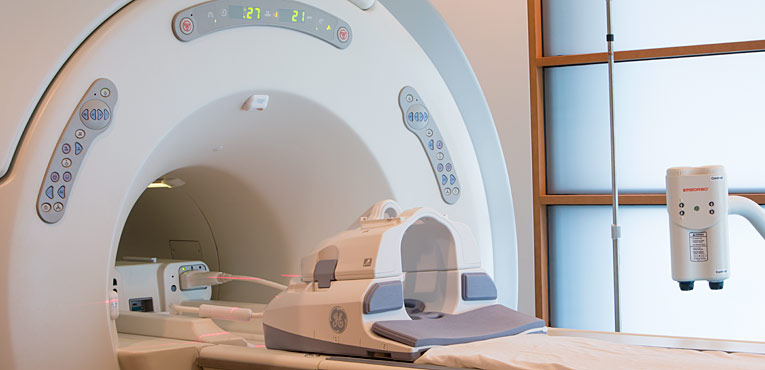Diagnostic MRI in British Columbia
Magnetic resonance imaging (MRI) is an advanced imaging technology that visualizes the internal structures and soft tissues of the body.
TECHNOLOGY
It uses a strong magnetic field and radio waves to produce highly detailed images of the body, which are reconstructed by a computer. MRI is a very safe imaging technique with no radiation exposure.

APPLICATIONS
Brain/Head
MRI is excellent for assessing the brain and spinal canal. It is used to detect brain abnormalities, tumours, strokes and neurological diseases such as multiple sclerosis. It can also identify disorders of the pituitary gland, vision pathway and inner ear.
Spine
MRI is most commonly used to detect bulging, degenerated or herniated intervertebral discs. For patients who have had lower back surgery, MR with contrast is the best tool to distinguish recurrent disc problems versus scarring.
Joints
For joints (ankles, elbows, knees, hips, shoulders, wrists), MRI provides detailed assessment of soft tissues and anatomical structures. Abnormalities and injuries of the ligaments, tendons, cartilage and bones can be accurately detected.
Abdomen
MR with contrast rivals CT in assessment of solid organs such as kidneys, liver, spleen, pancreas, and reproductive organs. It can detect or rule out cancerous tumours and characterize and stage diagnosed tumours, determining the size, extent and spread.
Angiography
MR angiography is a non-invasive way to assess blood vessels. It can diagnose and characterize cerebral aneurysms, investigate peripheral atherosclerosis (e.g. poor circulation in extremities) and evaluate strokes.
